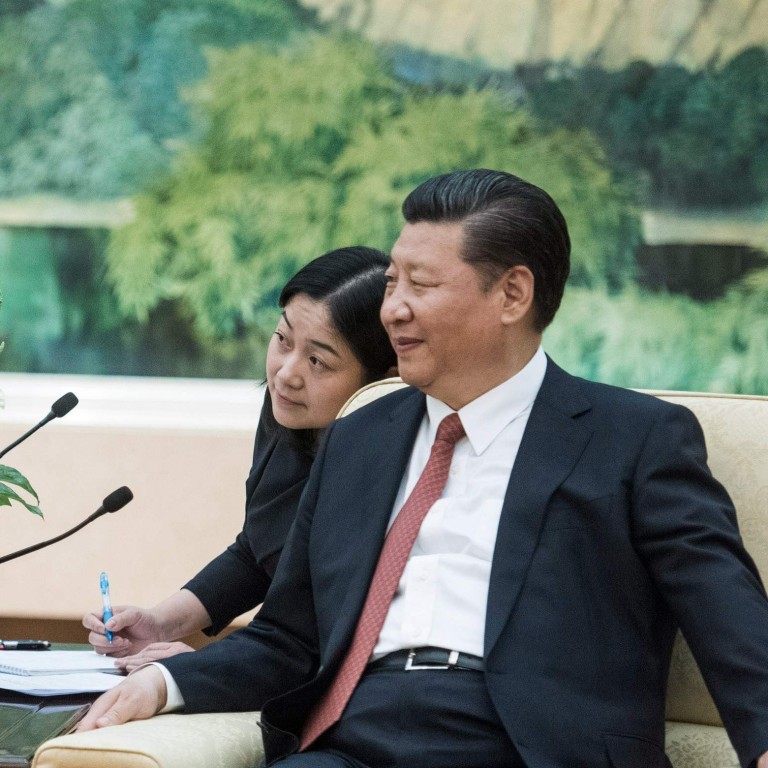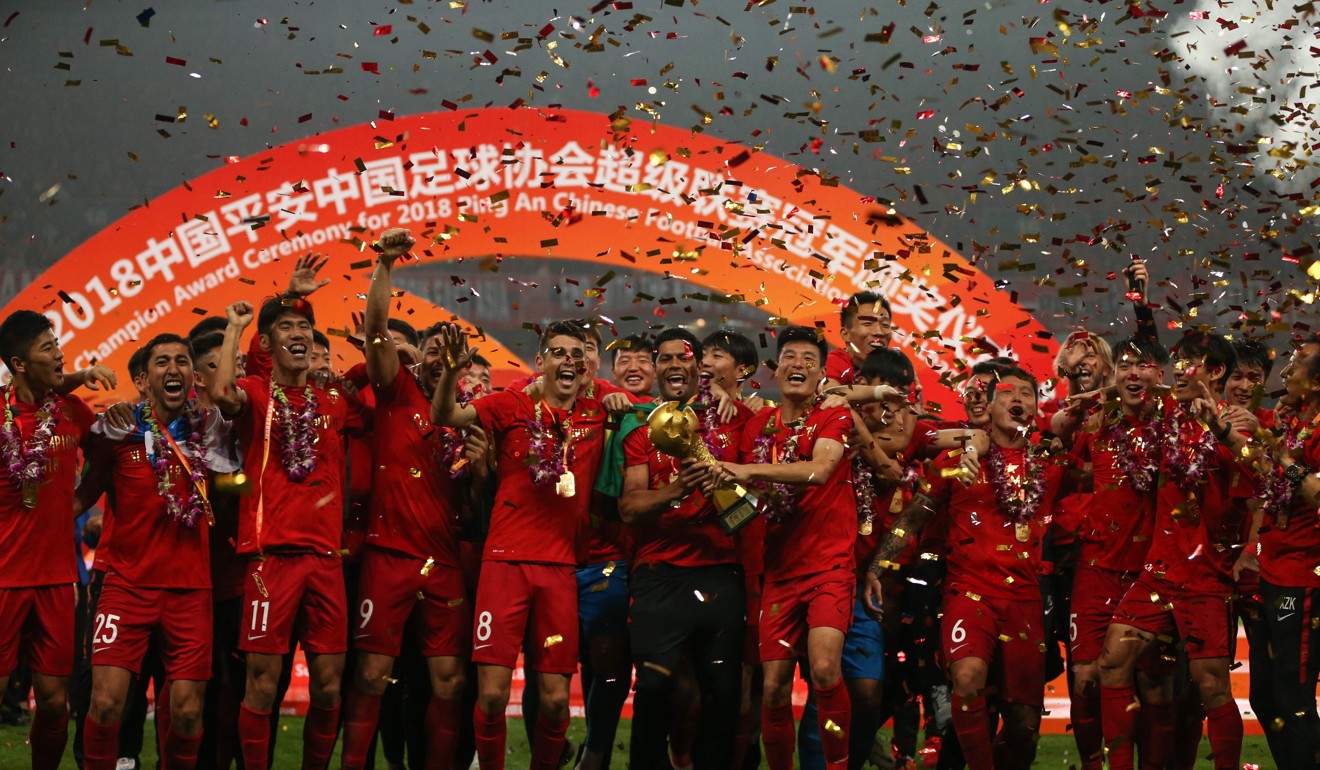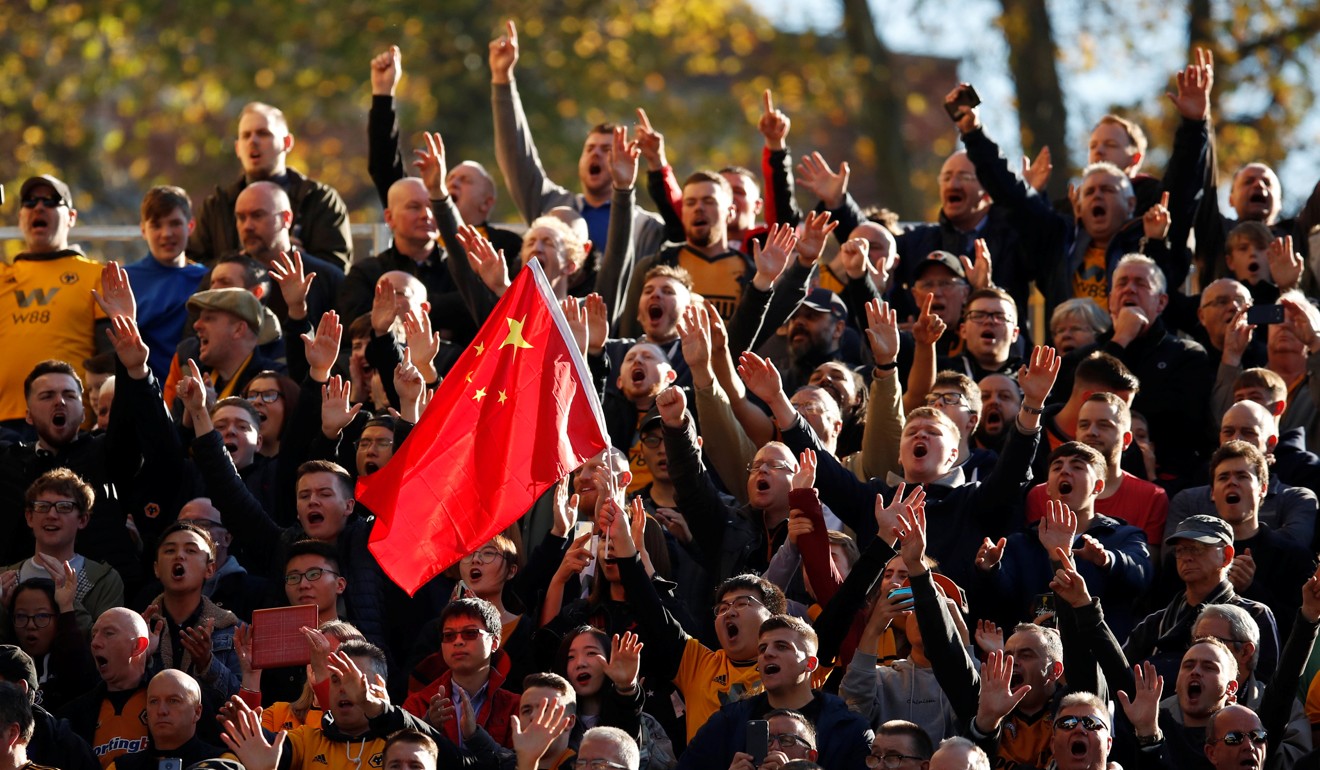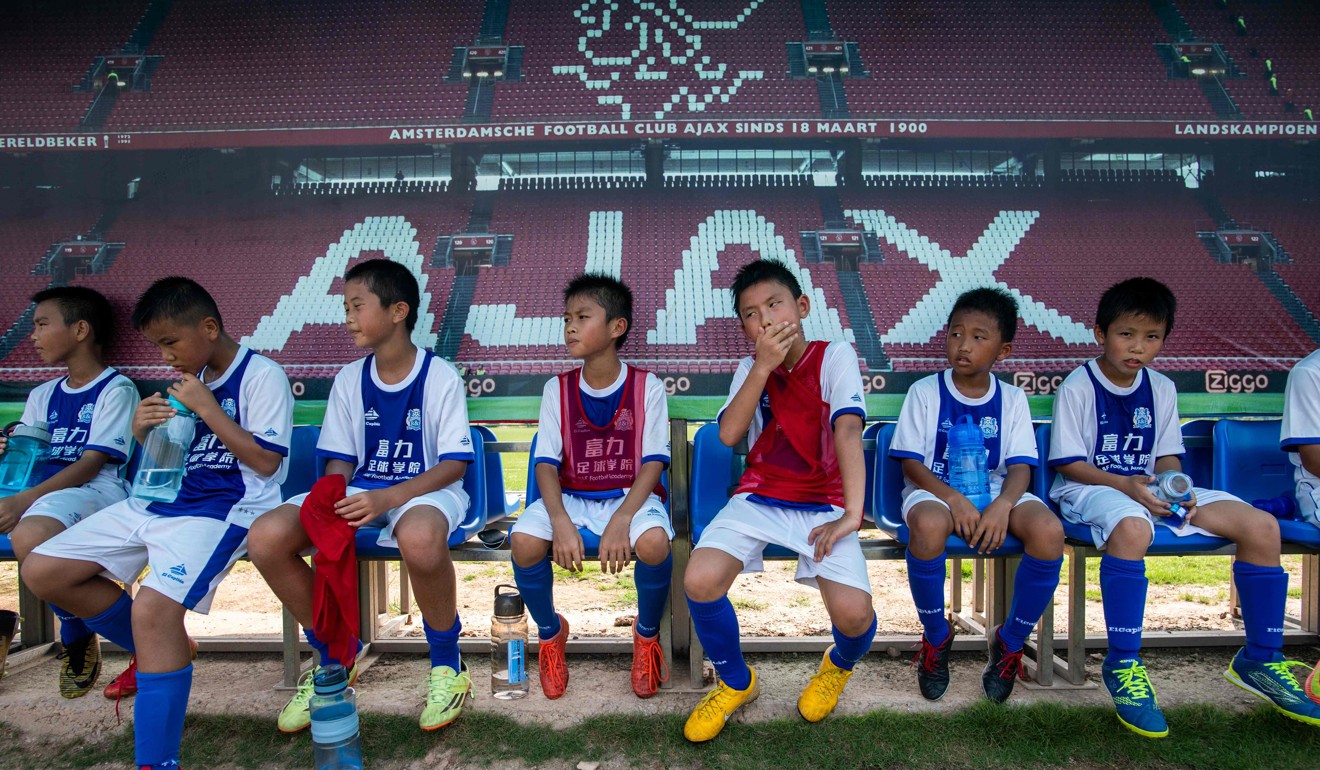
China’s quest to host Fifa World Cup receives state backing, says mainland media, with 2034 the most likely target
- ‘Football News’ says it is the first time the government has given clear support for the bid
The State Council’s recent guidelines to strengthen sports in the country is the first clear sign from senior government officials that China intends to bid for the World Cup, according to mainland media.
China’s cabinet released guidelines on Friday covering the entire sporting spectrum, from hosting major events to sports marketing and amateur participation – with the objective of tripling the value of the professional sports industry in China to 2 trillion yuan (US$290 billion) by 2025.
Li Yingchuan, the deputy head of the General Administration of Sport, said the industry would be built by promoting professional sports leagues, winter sports and globally prominent sporting events, such as world championships and world cups.
China soccer news outlet Football News interpreted this to refer to an almost definite bid to host football’s Fifa World Cup, probably in 2034.

“This is the first time since the 2008 Beijing Olympic Games that China’s bid to host the World Cup has received clear support from senior government officials,” it wrote. “For China, the most realistic bidding target can only be the 2034 World Cup.”
President Xi Jinping is an avid soccer fan and has long yearned for China to fulfil his three-pronged dreams – to qualify for the World Cup, to host the tournament and to win it.
His passion has spawned a wave of investments by Chinese business leaders in domestic and international football, which includes the buying of European clubs, increased investment in sports marketing globally and paying huge transfer fees to bring in international players for the Chinese Super League.
With Qatar hosting the 2022 tournament, Asia’s next slot is 2034 although world governing body Fifa has been known to bend its own rules in the past.

Xi has in the past spoken to Fifa President Gianni Infantino about China’s hopes of hosting the World Cup, but the State Council’s strong hint within its guidelines means such a bid would be part of government policy.
The guidelines, in addition to calling for more international events, identified a number of sports to focus on in terms of development. These are: soccer, basketball, volleyball, tennis and table tennis – all of which boast established professional leagues within the mainland.
The council also wants to target winter sports ahead of Beijing’s hosting of the 2022 Winter Olympics, as well as pursuing innovation in selected sports such as marathon running, cycling and extreme sports.

With Chinese companies making a major impact globally with their football investments, the guidelines called on more businesses to invest in sport.
“More companies will be encouraged to join the industry. China will push reforms to streamline and speed up the approvals process for sports-related companies,” a CGTN press release said.
“The aim is also to optimise the sports industry with a collaborative and sustainable platform in terms of investments, marketing, industrial layout and cooperation with multiple sectors such as the internet and tourism.”
China failed to qualify for the 2018 World Cup in Russia, their only appearance in the tournament being in 2002. However, Chinese companies have flexed their financial muscles overseas, with clubs such as Inter Milan, Olympique Lyonnais, Atletico Madrid, Manchester City, West Bromwich Albion and Wolves, among others, either fully or partly owned by Chinese entities.

At the highest level, China’s Wanda Group is an official Fifa partner.
In 2016, China’s professional sports industry was valued at 620 billion yuan, about one-third of China’s overall economic output from sports.
The country also wants to build 100 prestigious sporting events and 100 domestic brands with independent intellectual property rights by 2025.

